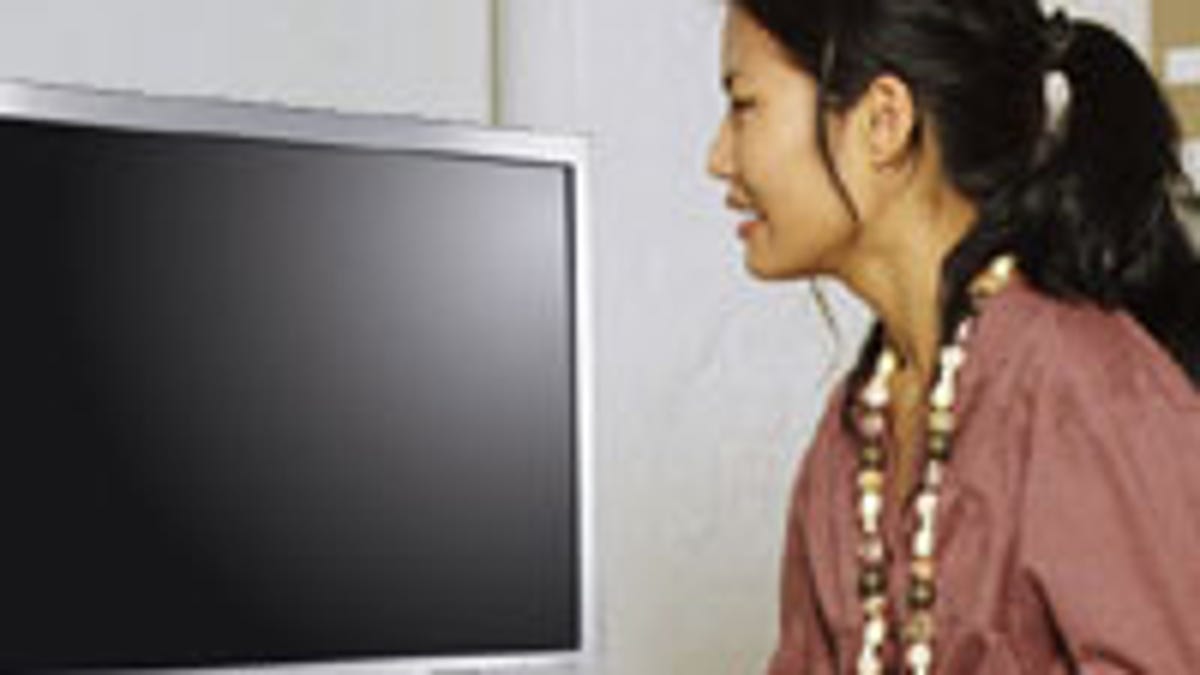High-def buyers face upgrade headaches
Australians may be snapping up high definition (HD) capable equipment, but movie studios and technology vendors face a potential public relations disaster if they can't help consumers avoid compatibility problems that could potentially force consumers to repurchase equipment down the road.

Australians may be snapping up high definition (HD) capable equipment, but movie studios and technology vendors face a potential public relations disaster if they can't help consumers avoid compatibility problems that could potentially force consumers to repurchase equipment down the road.
The risk comes from HDCP (High-Bandwidth Digital Content Protection), a technology that encrypts the data of an HD signal from the moment it's read from the disc until the moment it's decoded for display on a HD-capable television or monitor. HDCP was implemented to allow studios to protect the near pristine-quality versions of movies they are releasing, preventing would-be pirates from siphoning off the video bitstream to produce their own illegal copies.
Designed by Intel and licensed for a cost to electronics manufacturers, HDCP works seamlessly -- as long as consumers' Blu-ray or HD-DVD player, television, and home theatre all support the technology. The market already features a large number of HD-capable components -- which a recent GfK Marketing Services/Sony report found comprise 42 percent of mass-market AV sales -- yet many mid-range or entry-level components aren't necessarily HDCP ready.
For those wanting to watch high-definition discs on their computers -- including the Microsoft Windows Media Center Edition (MCE) systems that IDC believes will account for 25 percent of all home PCs bought by 2010 -- the burden is even higher: to play HD video, computers require HDCP-compatible drives, video cards, software and monitors.
The catch: plasma and LCD TVs without an HDMI port don't support the standard, nor do many of the monitors currently being sold as part of MCE-capable computers. Dell, for example, only offers HDCP capabilities on monitors that are 20 inches diagonal or larger, while TV and monitor giant Samsung only supports HDCP on 11 of its nearly 30 current models.
This means many consumers shelling out more than AU$2000 for today's MCE PCs will have to purchase expensive additional video cards or monitors once they decide to upgrade to Blu-ray or HD-DVD. This potential roadblock, which was lost in the enthusiasm during last week's Australian Blu-ray launch, could become a major issue for consumers who fail to appreciate HDCP's importance now.
"There's a lot of misinformation and misunderstanding in the market [about HDCP]," admits Simon King, IT display solutions product manager with Samsung, which has used HD as a core part of its recent corporate turnaround.
"There's the potential for a huge issue, particularly when PC-based Blu-ray players [become more affordable]," says King, who believes vendors could do more to educate consumers about HDCP and its implications.
Samsung's consumer education campaign will include the offering of 19-, 20- and 26-inch 'Windows Vista Certified' monitors co-developed with Microsoft, as well as information on its Web site listing HDCP-compatible video cards. Yet because Samsung only makes displays, it cannot guarantee -- as builders of entire MCE and other systems can -- that HDCP is supported end to end.
Paul Colley, technology communications manager with Sony Australia, acknowledges that a lack of end-to-end HDCP could present problems, especially for early adopters of HD gear and those using computers.
However, Colley says, many people wanting to play HD content on their computers will do so because they're authoring the content -- and will face no limitations -- but will then watch it on suitably large home-theatre systems. "For rich content such as Hollywood titles, you're really not going to get the benefit of 1080p on a 19-inch computer screen," he says.
For now, customers are enjoying a reprieve of sorts: desperate to help Blu-ray and HD-DVD find their feet, the big movie studios are reportedly holding off on enabling HDCP until 2010. This is a major concession to market reality given their determination to plug any possible hole that could be exploited by pirates.
Once HDCP is enabled in new HD movies, however, it will become a permanent fixture of mainstream releases -- and anybody without the right gear will find themselves in the dark. Those buying the wrong products now, during the transition to HDCP ubiquity, face the prospect of another big A/V purchase in the near future.
Over time, the HDCP gap is likely to disappear altogether as licensing fees come down, buying patterns continue to shift towards higher-value equipment, and Blu-ray and HD-DVD players become more common. Microsoft's recently released Windows Vista supports HDCP and includes MCE capabilities, but computers running the operating system won't play HDCP-protected content unless the standard is supported throughout every part of the systems running them. Sony's upcoming PlayStation 3 will include HDCP support, but will still require a suitable display to view HD movies.
For now, the lack of ubiquitous HDCP will force hobbyists to choose their components carefully, and buyers of prebuilt systems to make sure they've read the fine print before buying. Yet despite the industry's efforts, King concedes there are still likely to be more than a few disillusioned purchasers who find out the hard way -- via a black screen, or a scaled-down version of the movie for discs designed that way -- that they simply cannot enjoy the HD they paid for.
"We'll be incorporating HDCP anywhere we think there will be an intention to play video," he says, "but many people will be in for a rude shock when they try to watch full HD."